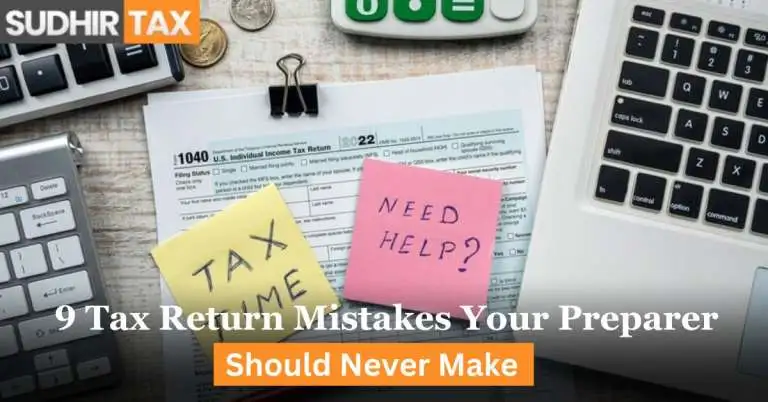Every taxpayer’s worst nightmare is to get audited. Fortunately, audits rarely happen to most people. However, the self-employed and other small firms do run into a variety of other tax issues. Here are three typical tax mistakes and solutions.
Table of Contents
ToggleMissing of Tax Deadlines
Most people believe that the tax filing date is April 15th. But there are typically additional tax deadlines that business owners need to be aware of. Your corporate income tax filing deadline, state sales tax filing deadlines, quarterly anticipated income tax payment deadlines, employment tax filing deadlines, and maybe others must all be met depending on the type of your business. Fines may apply if any required deadlines are missed, even by a single day.
Have your accountant provide you with a list of the deadlines you must meet in order to keep on top of everything. Set your calendar or accounting software to remind you of the deadlines a sufficient amount of time in advance so that you have time to compile the documents required to submit the forms on time. If you have workers, a payroll provider can take care of your tax filings and payment transfers so you won’t forget or miss filing deadlines.
Failure to Save Money for Taxes
It’s only natural to want to take advantage of some of the profits you’ve worked so hard to generate when you develop a successful business. When you file your personal tax return, however, failing to account for the income and any self-employment taxes you’ll owe on those gains could result in a sizable, unforeseen tax penalty. In fact, you might not have enough money on hand to pay the tax obligation if it is too large.
If this occurs to you, don’t become alarmed. Because of this one mistake, the IRS won’t come knock on your door and seize your home. Even if you are unable to pay, you should still file your tax return on time.
This is why: The IRS demands timely filing of tax returns in addition to the money it is owed. For each month or portion of a month that a tax return is late, up to a maximum of 25% of the taxes due, the IRS will assess a penalty. The penalty will be equal to 5% of the unpaid taxes. The day after your return is due is when the penalty begins to build up.
Simply filing your tax return on time will help you avoid paying that hefty fee. When you file, pay as much of the debt as you are able to. You can create a payment schedule with the IRS to send the remaining funds. The failure-to-pay penalty ranges from 0.5% to 1% of the outstanding taxes; therefore, the more you can pay when you file the return, the lower the penalty will be.
poor record-keeping
You might not be able to compile all the records (or deliver them on time to your accountant) to finish your return on time if you haven’t been diligent about keeping your business’ income and expense records organised.
If this occurs, you can avoid paying the late filing fine by asking the IRS for an automatic tax filing extension. The extension does not extend the deadline for payment; it simply affects the filing date. Therefore, to reduce late payment penalties, you should estimate and pay the amount of tax you anticipate owing before you file for an extension.
Receiving a Notice from the IRS
To be clear, receiving a notice from the IRS differs greatly from experiencing an audit. It’s simple to freak out if you get a letter in the mail from the IRS, but it might only be a small problem. The IRS might have discovered a mistake you made and determined you owe them additional money. Paying what is owed is the simplest solution if the sum is little. However, you have the option to challenge the charge if you disagree with the IRS. The best method to do it is to let your accountant handle it since they will be familiar with how to address the IRS.
Contacting the IRS can be a wise first move for you, depending on your circumstances. You can get explanations from a revenue officer, as well as guidance on how to continue.
A word of caution: be wary of con artists posing as the IRS. The IRS typically sends a letter through the U.S. Postal Service as the first point of contact on tax issues. The IRS doesn’t call or send emails requesting credit card information or other specialised payment methods like gift cards.
Important Words
Nobody wants to have issues with the IRS. However, issues may occasionally come up. When they do, discuss them with your accountant and resolve the issues as soon as you can.
Disclaimer: The material on this page shouldn’t be taken as legal, tax, or accounting advice; it’s only there for informational reasons. Consult a trained expert if you have any particular questions about any of these subjects.
You May Also Like This
- 6 Tax Hacks For Small Business Owners and the Self-Employed
- 5 Reasons Why Your Business Needs Professional Tax Preparation and Bookkeeping Assistance
- How to Get the Maximum Tax Refund in 2023








